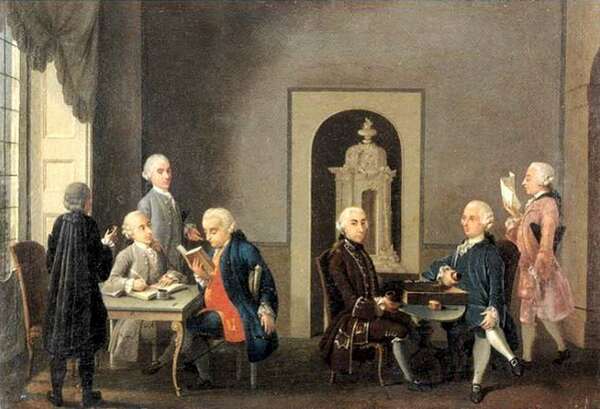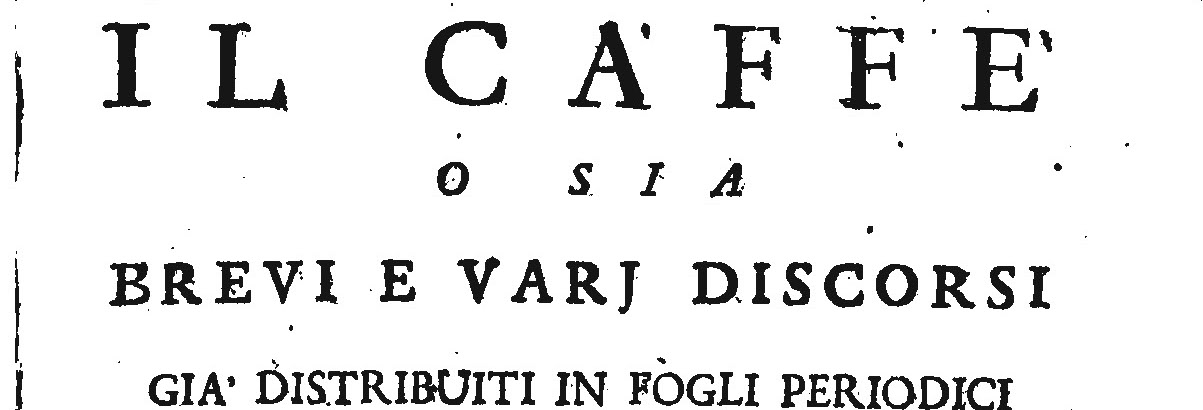

Professor Sabrina Ferri (Romance Languages and Literatures–Italian), faculty affiliate of the Center for Italian Studies, is co-organizing a conference with Professor Clorinda Donato (California State University, Long Beach) on the Italian Enlightenment as a part of the annual core program of the UCLA Center for 17th- and 18th-Century Studies at the William Andrews Clark Memorial Library on 5-6 November 2021. After a competitive selection process, Professors Ferri and Donato received major funding for the conference from the UCLA Center for 17th- and 18th-Century Studies.
Entitled "Expanding the Boundaries of the Republic of Letters: Il Caffè and Enlightened Italy," the conference will explore the principal journal of the Lombard Enlightenment, Il Caffè, and its global impact. This conference seeks to promote a collective discussion that raises awareness about Il Caffè in the Anglophone world, while examining its reception in Austria, France, Germany, and Switzerland. It aims to showcase the truly transnational and trans-ideological nature of the eighteenth-century Republic of Letters, to trace the global movement of ideas, and to explore the tensions and exchanges between the centers and peripheries of the Enlightenment.

The Accademia dei Pugni by Antonio Perego
Born out of an extraordinary confluence of talent in the unique socio-political context of Habsburg Lombardy, Il Caffè (1764-66) was a short-lived but wide-ranging periodical, which would prove to be one of the most original and influential intellectual products of the Italian Enlightenment. The journal, which owed its title to English coffee houses and to the invigorating virtues of coffee, was the product of a collective effort involving a group of thirteen young intellectuals. Most of them had been members of the Milanese Accademia dei Pugni, or "Academy of the Fists," a think-tank of intellectuals, including Pietro and Alessandro Verri and Cesare Beccaria. The ideas of these thinkers, which had a profound impact on European and American culture, found their fullest expression in the pages of Il Caffè.
The impetus behind the journal was to spread Enlightenment ideas in Italy in an attempt to fill what was perceived as a gap in Italian culture. Inspired by the Spectator and by the Encyclopédie, the contributors wrote on the most disparate aspects of cultural, social, and political life: from agriculture to natural history, from aesthetics to medicine. Between 1764 and 1766, 74 issues were published, but after just two years, the periodical ceased its publication.
"The small group of friends that wrote these pages has been dissolved—some decided to take a trip; others are involved in business affairs…"
The journey mentioned here is the journey that would bring Cesare Beccaria and Alessandro Verri to Paris, to share their ideas with d'Alembert, Diderot, Morellet, and d'Holbach. In the following years, many of the contributors of the periodical would occupy important posts in the Habsburg administration. The disbandment of the "small group of friends" was just the beginning of the journal's long afterlife. The ideas and the authors of Il Caffè traveled far and wide, reaching well beyond the geographical and chronological limits of Habsburg Lombardy.